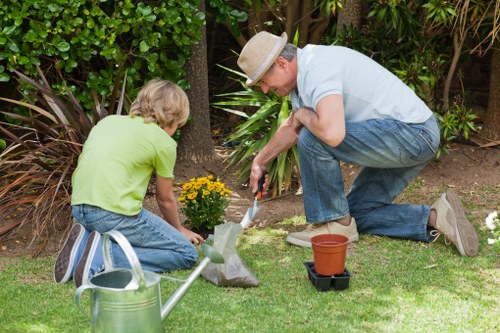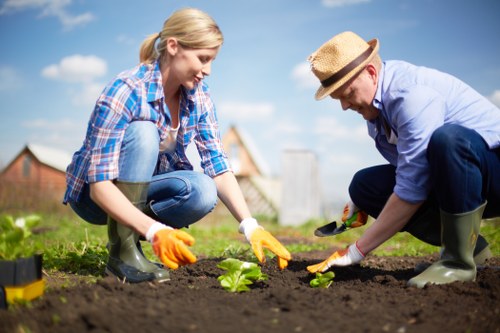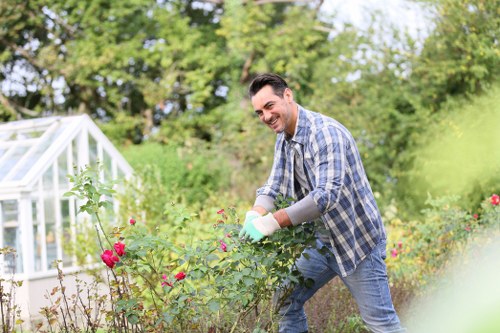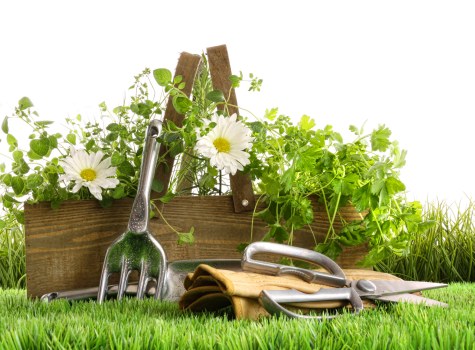Gardeners Forest Hill: A Haven for Green Thumbs

Forest Hill is a charming area known for its lush greenery and vibrant gardening community. Whether you are a seasoned gardener or just starting out, Forest Hill offers a plethora of opportunities and resources to help your garden thrive.
The local climate in Forest Hill is ideal for a wide variety of plants. With ample rainfall and moderate temperatures, gardeners can cultivate everything from colorful flowers to robust vegetables.
Community gardens are a staple in Forest Hill, providing residents with shared spaces to grow their own plants. These communal areas not only foster a sense of community but also allow gardeners to exchange tips and share resources.
The Best Plants for Forest Hill Gardens

Choosing the right plants is essential for a successful garden in Forest Hill. The region’s soil is fertile, and the climate supports a diverse range of flora. Here are some popular choices:
- Roses: Known for their beauty and fragrance, roses thrive in Forest Hill’s conditions.
- Lavender: This hardy plant is perfect for adding color and scent to your garden.
- Tomatoes: With proper care, tomatoes can produce bountiful harvests.
- Herbs: Basil, thyme, and rosemary are excellent choices for both gardens and kitchens.
These plants not only add aesthetic value but also contribute to a sustainable and productive garden environment.
Essential Gardening Tips for Forest Hill

To make the most of your gardening experience in Forest Hill, consider the following tips:
- Soil Preparation: Ensure your soil is well-drained and enriched with organic matter.
- Watering: Consistent watering is key, especially during dry spells.
- Sunlight: Most plants require at least six hours of sunlight daily.
- Pest Control: Use natural pest control methods to keep your garden healthy.
Implementing these practices can help you maintain a thriving and vibrant garden.
Tools and Resources for Gardeners in Forest Hill

Having the right tools can significantly enhance your gardening experience. In Forest Hill, local stores offer a wide range of gardening tools and supplies:
- Hand Tools: Shovels, trowels, and pruners are essential for everyday gardening tasks.
- Power Tools: Electric lawn mowers and tillers can save time and effort.
- Gardening Supplies: Fertilizers, compost, and mulch are readily available to support plant growth.
Additionally, Forest Hill hosts gardening workshops and seminars, providing valuable knowledge and skills for both novice and experienced gardeners.
Local Gardening Communities and Events

Joining a local gardening community can be immensely beneficial. In Forest Hill, there are numerous groups and clubs where gardeners can connect, share experiences, and collaborate on projects.
Annual garden shows and plant fairs are also a highlight, showcasing the best of Forest Hill’s gardening talent and offering opportunities to learn about the latest trends and techniques.
Participating in these events fosters a sense of belonging and encourages continuous learning and improvement in your gardening endeavors.
Nearby Areas for Gardeners in Forest Hill
- Greenwood: Just 2 miles away, known for its botanical gardens.
- Mapleton: 3 miles from Forest Hill, offers extensive nurseries.
- Oakridge: 4 miles away, famous for community gardening projects.
- Pinecrest: Located 5 miles from Forest Hill, home to several gardening clubs.
- Lakeside: 6 miles away, ideal for water gardening enthusiasts.
- Sunnyvale: 7 miles from Forest Hill, known for its vibrant flower markets.
- Brookfield: 8 miles away, offers educational gardening workshops.
- Riverview: 9 miles from Forest Hill, has beautiful riverbank gardens.
- Hillcrest: 10 miles away, renowned for its ornamental plant varieties.
- Elmwood: 11 miles from Forest Hill, features historic garden estates.
Maintaining Your Forest Hill Garden Throughout the Year
Seasonal changes require different care strategies to keep your garden flourishing. Here’s how to maintain your Forest Hill garden year-round:
- Spring: Focus on planting new seeds and preparing the soil.
- Summer: Ensure consistent watering and manage pests.
- Autumn: Clean up fallen leaves and prepare plants for winter.
- Winter: Protect sensitive plants and plan for the upcoming gardening season.
Regular maintenance and attention to seasonal needs will help your garden remain healthy and vibrant throughout the year.
Eco-Friendly Gardening Practices in Forest Hill
Embracing eco-friendly gardening practices not only benefits your garden but also the environment. Here are some sustainable methods popular in Forest Hill:
- Composting: Recycle organic waste into nutrient-rich compost.
- Rainwater Harvesting: Collect and use rainwater for irrigation.
- Native Plants: Incorporate native species that require less water and maintenance.
- Natural Pest Control: Use beneficial insects and organic pesticides to manage pests.
Adopting these practices ensures a sustainable and eco-friendly garden that thrives in harmony with nature.
Choosing the Right Location for Your Garden in Forest Hill
The location of your garden plays a crucial role in its success. When selecting a spot in Forest Hill, consider the following factors:
- Sunlight: Choose an area that receives adequate sunlight throughout the day.
- Soil Quality: Ensure the soil is fertile and well-drained.
- Accessibility: Make sure your garden is easily accessible for maintenance.
- Protection: Select a location sheltered from strong winds and extreme weather.
Proper site selection sets the foundation for a healthy and productive garden.
Innovative Gardening Techniques Popular in Forest Hill
Gardeners in Forest Hill are increasingly adopting innovative techniques to optimize growth and sustainability:
- Vertical Gardening: Maximizes space by growing plants vertically on walls or trellises.
- Hydroponics: Cultivates plants without soil, using nutrient-rich water solutions.
- Permaculture: Designs gardens that mimic natural ecosystems for sustainability.
- Smart Gardening: Utilizes technology for efficient watering and monitoring.
Integrating these modern methods can enhance the efficiency and productivity of your garden.
Winterizing Your Forest Hill Garden
Preparing your garden for winter is essential to protect your plants and ensure their healthy growth in the spring:
- Mulching: Apply a thick layer of mulch to insulate plant roots.
- Pruning: Trim dead or damaged branches to prevent disease.
- Covering: Use protective covers for sensitive plants.
- Watering: Continue to water plants until the ground freezes.
These steps help your garden withstand the colder months and promote robust growth when the weather warms up.
Starting a New Garden in Forest Hill
If you’re new to gardening in Forest Hill, starting your garden can be both exciting and overwhelming. Follow these beginner-friendly steps:
- Plan Your Garden: Decide what you want to grow and where.
- Prepare the Soil: Test and amend the soil as needed.
- Choose Your Plants: Select plants that are well-suited to the local climate.
- Plant Carefully: Follow planting guidelines for spacing and depth.
- Maintain Regularly: Water, weed, and care for your plants consistently.
Starting with these basic steps can help you establish a thriving garden in no time.
Maximizing Garden Productivity in Forest Hill
To get the most out of your garden, consider these productivity-boosting strategies:
- Crop Rotation: Rotate plant families to prevent soil depletion.
- Succession Planting: Plant new crops as soon as previous ones are harvested.
- Companion Planting: Grow certain plants together to enhance growth and deter pests.
- Raised Beds: Use raised beds to improve drainage and soil quality.
Implementing these techniques can lead to a more productive and efficient garden.
Garden Design Ideas for Forest Hill
Creating an aesthetically pleasing garden is as important as its functionality. Here are some design ideas popular in Forest Hill:
- Symmetrical Layouts: Create balance and harmony with symmetrical planting.
- Pathways: Incorporate pathways to guide visitors through your garden.
- Water Features: Add ponds or fountains for a tranquil atmosphere.
- Seating Areas: Provide spaces to relax and enjoy your garden.
- Lighting: Use garden lights to highlight features and extend enjoyment into the evening.
These design elements can transform your garden into a beautiful and inviting space.
Common Gardening Challenges in Forest Hill and How to Overcome Them
Gardening in Forest Hill comes with its own set of challenges. Here are some common issues and solutions:
- Pest Infestations: Use natural predators and organic pesticides to manage pests.
- Soil Erosion: Install barriers and use ground cover plants to prevent erosion.
- Weed Control: Regularly remove weeds and use mulch to suppress their growth.
- Water Shortages: Implement rainwater harvesting and efficient irrigation systems.
Addressing these challenges proactively ensures a healthy and sustainable garden.
Gardening for Health and Well-being in Forest Hill
Gardening offers numerous health benefits, contributing to both physical and mental well-being:
- Physical Exercise: Gardening activities provide a good workout, enhancing strength and flexibility.
- Stress Relief: Being in nature and tending to plants can reduce stress and improve mood.
- Nutrition: Growing your own vegetables ensures access to fresh and nutritious produce.
- Mindfulness: Engaging in gardening promotes mindfulness and a sense of accomplishment.
Embracing gardening in Forest Hill can lead to a healthier and happier lifestyle.
Advanced Gardening Techniques for Experienced Gardeners
For those looking to take their gardening skills to the next level, Forest Hill offers advanced techniques:
- Grafting: Combine different plant varieties for improved growth and resistance.
- Aeroponics: Grow plants in an air or mist environment without soil.
- Seed Saving: Collect and store seeds for future planting.
- Hydrogel Use: Apply hydrogels to retain moisture in the soil.
Incorporating these advanced methods can enhance garden productivity and plant health.
Integrating Wildlife into Your Forest Hill Garden
Creating a wildlife-friendly garden enriches the ecosystem and promotes biodiversity:
- Birdhouses: Attract birds that help control pests.
- Bee Hotels: Provide habitats for pollinators essential for plant growth.
- Pond Areas: Support amphibians and beneficial insects.
- Native Plants: Offer food and shelter for local wildlife.
Encouraging wildlife in your garden contributes to a balanced and thriving environment.
Conclusion: Embrace Gardening in Forest Hill
Forest Hill is a gardener’s paradise, offering the perfect conditions and a supportive community to nurture your green aspirations. Whether you are planting your first seed or refining advanced techniques, Forest Hill provides the resources and inspiration you need to create a beautiful and productive garden.
Embrace the joy of gardening and contribute to the vibrant green landscape that makes Forest Hill a special place for all nature enthusiasts.
Frequently Asked Questions

1. What is the best time of year to start a garden in Forest Hill?
The best time to start a garden in Forest Hill is in the spring, after the last frost. This allows plants to thrive during the warm growing season.
2. What types of soil are best for gardening in Forest Hill?
Forest Hill has fertile, well-drained soil. However, adding organic matter such as compost can improve soil structure and nutrient content.
3. How can I manage pests naturally in my Forest Hill garden?
Use natural predators like ladybugs, apply organic pesticides, and practice crop rotation to manage pests without harmful chemicals.
4. Are there any local gardening clubs in Forest Hill?
Yes, Forest Hill has several gardening clubs and communities where you can connect with other gardeners, attend workshops, and participate in events.
5. How can I conserve water in my Forest Hill garden?
Implement rainwater harvesting, use drip irrigation systems, and apply mulch to retain soil moisture and reduce water usage.


